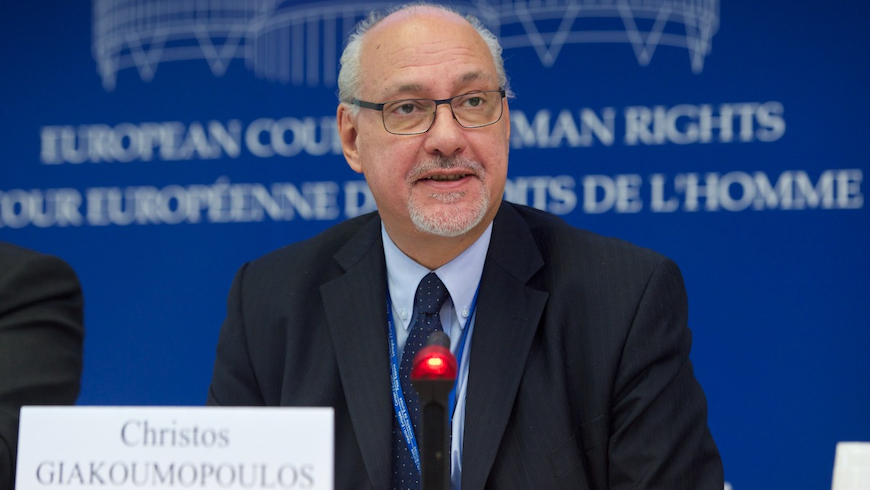Conclusions by Christos Giakoumopoulos
Chisinau Conference on the execution of the judgements of the European Court of Human Rights concerning the Transnistrian region of the Republic of Moldova
19 February 2018, Chisinau
The process of implementation of judgments of the European Court of Human Rights contributed over the years to the finding of a solution to lingering post-conflict issues, thus facilitating reconciliation. The acceptance by all those involved of the requirements of the European Convention on Human Rights has been an important step in overcoming tensions and building trust.
The cases concerning the situation in the Transnistrian region of the Republic of Moldova present a major opportunity to move forward in finding solutions to present deadlocks.
It appears crucial that genuine dialogue between all those capable of providing effective redress to the victims of violations in the Transnistrian region of the Republic of Moldova be established. This dialogue should be creative and break the vicious circle of legal presumptions which lead to impasses, to the detriment of the rights of all those in the region.
In this context the role of fora such as the "5+2 group" was highlighted.
The importance of dialogue was stressed as being crucial for ensuring a common understanding of the requirements flowing from the judgments for both states exercising jurisdiction, the Republic of Moldova because of its unchallenged claims over the territory, the Russia Federation because of its decisive influence over the administration there.
A number of questions were raised especially in connection with the test of "decisive influence" and the scope of the corresponding obligations for the execution process. Are we still in the area of obligations to achieve results or are we in the field of an obligation to use all available means to achieve these results? In other terms what are the concrete obligations of the Russian Federation - and how are they different from those of the Republic of Moldova? What should these High Contracting Parties do to be discharged of their responsibilities?
The dialogue should be open and constructive, all the more so when a political solution of a global settlement is still awaited. This dialogue should aim at seeing if there are possibilities to ensure, at least on a sectorial basis, the existence of an acceptable legal remedy in the Transnistrian region of the Republic of Moldova capable of providing redress to victims of human rights violations.
Today's fruitful discussions showed that a more holistic approach is needed. This approach should aim at an adequate assessment of the existence of legal remedies in the region. A more proactive assessment should also be made to see whether and how the Russian Federation has used means at its disposal to ensure respect for the European Convention on Human Rights. Similar assessments should also be made anew as regards the Republic of Moldova.
-o0o-




